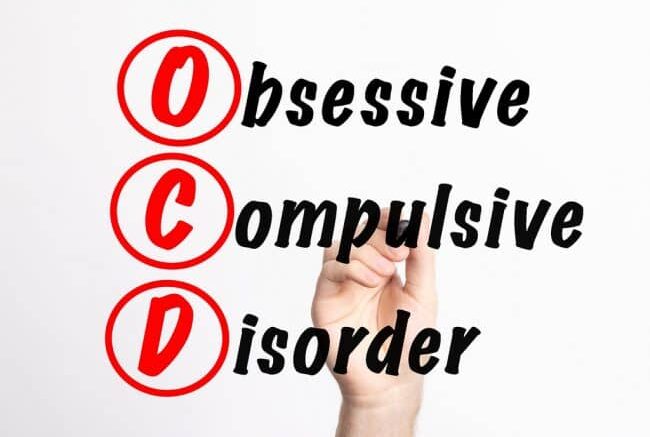Are You Really “So OCD?”
If not, maybe it is time you rethink saying so. “I’m so OCD” is a catchphrase many tend to use to describe their desire to be orderly or clean.
This saying is contributing to the continuous spreading of misinformation about what OCD actually is.
What is OCD?
OCD (Obsessive-Compulsive Disorder) is a psychiatric disorder characterized by recurring, undesirable, and intrusive thoughts (obsessions) and irrational, excessive urges to perform certain actions (compulsions).
While a person with OCD may logically understand their behaviors and thoughts are abnormal, the ability to stop them is little to none.
What people fail to realize is, while this can be a genetic disorder, many struggling with OCD have a history of trauma, major or complex. OCD is considered a trauma-based anxiety disorder.
Approximately 1.2% of the U.S. adult population struggles with OCD each year.
Symptoms of OCD
Just because you like things to be clean and in order, it does not mean you are “so OCD.” If you do not have OCD and say, “I’m so OCD” when talking about being clean, you are describing satisfaction received from cleaning.
While cleanliness and orderliness might be in line with OCD symptoms, those diagnosed with OCD struggle with these as a way to control emotions when triggered from their past traumas. The obsessions and compulsions are more distressing than satisfying.
According to the DSM-5, the diagnostic criteria for OCD are as follows:
- Obsessions and/or compulsions are time-consuming and take up more than one hour of one’s day.
- Clinically significant distress or impairment in any area of life (social, work, home) is exhibited.
- The symptoms are not better explained by another mental disorder or substance use.
- The symptoms for obsessions and compulsions:
Obsessions:
Recurring and persistent thoughts urges, or impulses that are experienced as disturbing, unwanted, and sometimes unsettling thoughts that cause anxiety or distress. As such:
- Unwanted sexual thoughts, fears about committing violent acts, religious obsessions.
- The attempt to disregard, neutralize, or repress these thoughts, urges, or images is to perform a compulsion.
Compulsions:
Repetitive behaviors or mental acts one feels driven to perform in response to an obsession.
- Repetitive behaviors
- Hand washing, tapping, continuously checking.
- Mental behaviors
- Praying, counting, repeating words silently.
Behaviors or mental acts must be aimed at preventing or reducing the anxiety and distress experienced by the obsessions.
These are not connected in a realistic way that is designed to neutralize or prevent unwanted anxiety and is undoubtedly extreme.
How Pop Culture Misconstrues OCD
Contrary to popular belief, the majority of people diagnosed with OCD are the last people on Earth that would be considered “neat-freaks.”
This disorder can be so time-consuming and debilitating that cleaning and having things in order are the last thing they are thinking about.
OCD is a draining condition. One that, if severe enough, can keep you from holding down a job, keeping a healthy relationship, and can control your entire life. It is overwhelming, exhausting, and impossible to get away from at times.
While all mental health diagnoses are not a “one size fits all” diagnoses, OCD is going to be the disorder that looks the most different for every person affected by it.
Anymore, OCD has been turned into an adjective used by many to describe them fixing something that embarrasses them.
Getting Help for OCD
If you feel you are struggling with OCD, different options will help you find relief from your symptoms. Treatment plans for OCD usually consist of psychotherapy and medication.
Some people are against medication, due to the stigma of mental health medications. If you do not feel better or you feel “numb” on the medication, you are on the wrong one.
There are many medications out there that will do nothing but help calm your mind. Once your mind is calm, the obsessions and compulsions will greatly subside.
Obsessions and compulsions are brought on worse when triggered. When stress is released, you’ll find OCD tends to get worse.
These medications help calm your mind by releasing hormones your brain is deficient in. This way, it is harder for you to get stressed.
Psychotherapy is incredibly useful when it comes to OCD, as it helps you address the trauma (or genetic history) causing your OCD. Not only will you address the trauma causing the OCD, but you will also address the obsessions and compulsions themselves.
The best therapeutic techniques used for helping with OCD are cognitive behavioral therapy (CBT) and exposure therapy.
Exposure therapy is a type of therapy that exposes the person to what causes them obsessive thoughts while not acting on their compulsions to reduce the anxiety caused by those obsessions.
It is difficult at first, but over time it will lead to less anxiety and greater control over your OCD symptoms.
Another treatment method is exercise. Exercise has been proven to help all mental health diagnoses, but it is extremely beneficial for those with OCD.
It has been found that aerobic exercises are beneficial in helping to calm OCD symptoms.
Conclusion
At the end of the day, those who say they are “so OCD” are usually just misinformed and do not understand the depths of this difficult diagnosis.
Although OCD cannot be cured and will flare up when life gets more difficult, you can learn how to treat it effectively.
The good news about this diagnosis is that, with enough work, it will no longer control your life and you will be free to be who you really are.
References:
- American Psychiatric Association. (2013). Diagnostic and statistical manual of mental disorders (5th ed.). Washington, DC: Author. Nami.org. 2021.
- Obsessive-compulsive Disorder | NAMI: National Alliance on Mental Illness. [online] Available at: https://www.nami.org/About-Mental-Illness/Mental-Health-Conditions/Obsessive-compulsive-Disorder [Accessed 2 June 2021].
How to know if you have anxiety

I obtained my Bachelor's of Psychology in 2017 and Masters of Social Work in 2019. I currently work in private practice as a trauma therapist.
